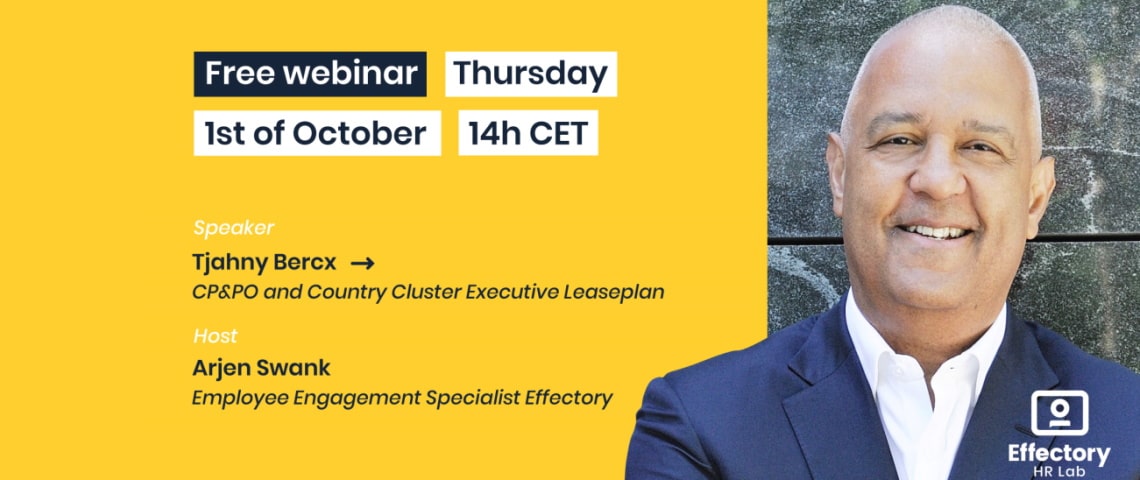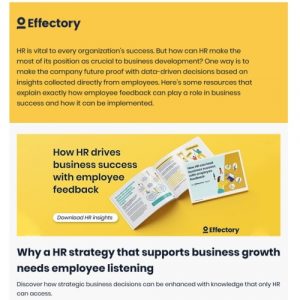“Technological unemployment.” This concept comes from John Maynard Keynes and refers to the mass displacement of jobs due to technological change. But is that a realistic forecast?
Technological unemployment: What's next?

What if we, HR managers and employees, master the technological developments and associated skills? Can we then use the technological revolution to increase the success of our organizations? Tjahny Bercx, Chief People & Performance Officer at LeasePlan, provides answers.
The world of work is changing rapidly as technological developments follow each other in rapid succession. How do these technical developments affect the way we run our businesses? Will our current jobs still exist? How future-proof actually are our organizations? Tjahny Bercx talks about (unfounded) fears and opportunities: how do we use technical developments to increase the success of our organizations?
A new normal
We are moving toward a “new normal.” We are currently receiving advance notice or a warning that we need to adapt or transition to a new situation. This means that we have to keep up with (technological) developments, among other trends. Let’s move from pessimism and fear to a period of optimism and embracing new things. Given that we are in the middle of the fourth industrial revolution, how could we do anything else?
Industry 4.0
Has unemployment ever actually been caused by technological processes? Or did they just create more prosperity and employment? In the last three revolutions we have shifted from an agriculture-based economy to one focused on industry, and then in turn from industry to an economy slanted toward the service industry. In all of these years, people have always found a way to find and create new jobs. But is this also true of the upcoming revolution in which we are shifting to Industry 4.0?
The new gold
For the first time in history, technological developments are replacing our cognitive, rather than physical, skills. And yes, that is exciting, because within this revolution we are not talking about one new technology, but several new technologies that are emerging at the same time. This has a huge impact on existing organizations. At least, it does on the organizations that stick to “the old.” Organizations that embrace new technologies, on the other hand, are tapping into the “new gold:” data.
The ostrich effect
The real danger of our time lies not in the new technologies, but in ignoring or even denying that the fourth industrial revolution is happening. Organizations are still speculating about the possible impact of technological developments on functions. That, combined with a lack of know-how of what the technological processes mean for organizations and their employees, leads to the greatest danger of our time: a lack of action. We bury our heads in the sand.
Receive the best HR articles in your mailbox
Subscribe to our newsletter and you will receive the best HR articles on a quarterly basis.
Sign upEmployagility
Fortunately, it doesn’t have to be like that. When managers and employees respond consciously, professionally and quickly to change, they continue to add value. We have a great word for this: “employagility.” We believe that there will still be sufficient (new) jobs, provided that we teach ourselves new skills in the area of information and technology. Because that is essential for understanding technology and analyzing, evaluating and organizing data. It is essential to grow toward “a new normal.”
New skills
Many new jobs are already being created at the moment. Take, for example, the “Big data analyst,” “AL specialist” and the “Machine learning expert.” Jobs that all require new skills. Skills that employees must acquire in an intellectually convincing and emotionally appealing way. Time to change!
Let’s get started!
Do you want to grow as an organization and benefit from technological development? Here’s how to do it:
- Imagine (again): Imagine your company in the year 2025. What do certain functions look like?
- Understand technology: Keep an eye on the latest technological trends and give your employees an insight into the essence of the fourth industrial revolution and the rapidly evolving technologies.
- Understand the impact of technology: Explain the impact of the skills of the future to your employees.
- Take responsibility: Talk to your employees and support them in acquiring future-oriented skills.
Want to see and read more about technological unemployment?
Thank you, Tjahny, for this interesting webinar! Are you keen to find out more about technological unemployment, crisis management, leadership and being a good employer? Each month, Effectory hosts a free webinar covering a topic that is relevant to the times we now live in.
Book a free demo. See our solutions in action.
Effectory is Europe's Leading provider of Employee Listening Solutions. Schedule a product demo and discover how to enhance your employees' engagement.
Demo request
